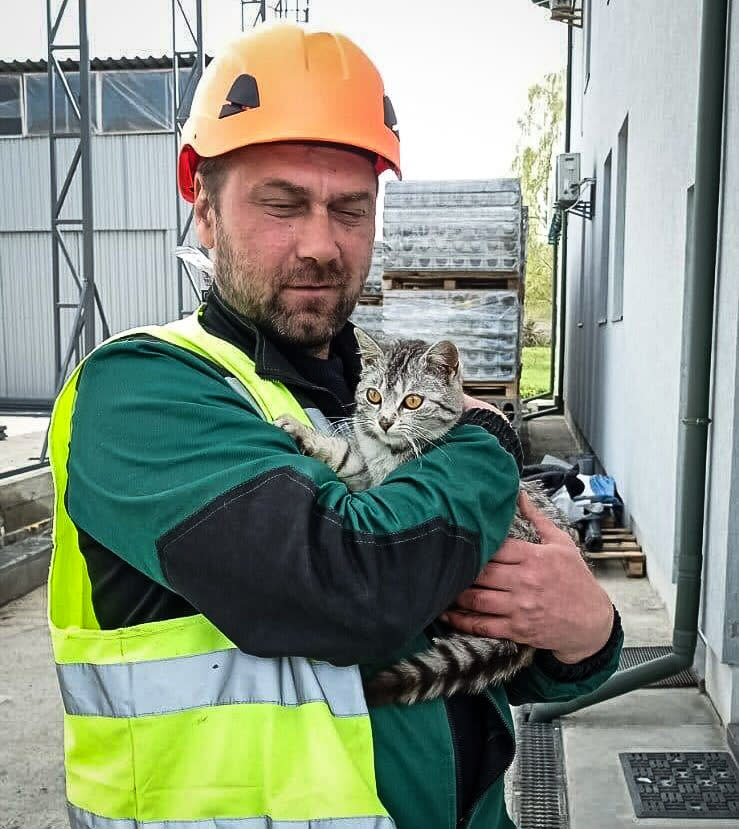Bucha residents describe litany of horror after Russian retreat
BUCHA, Ukraine — It was cold when Russian soldiers came for Oleg Abramov, his wife said, so they killed him after taking his sweater.
A few days after the invasion of Ukraine, Iryna Abramova, 42, was with Oleg and her father in their house in the town of Bucha near the capital, Kyiv, when the soldiers threw a grenade through a window, she said. Still wearing slippers, the three ran into the cold to escape the fire.
“They made him take his sweater off, then they put him on his knees and shot him in the head,” Abramova told NBC News as she stood in front of her home in the now-devastated town. “Half of his head was gone. I went on the street and blood was still pumping from his head.”

NBC News could not independently confirm Abramova's account, but it echoes similar stories from survivors and eyewitnesses in Bucha who told NBC News of arbitrary killings, intimidation and looting at the hands of the Russian soldiers.
“I started to shout, ‘Kill me, too,’” Abramova said as she clasped her hands to her chest.
Because of sniper fire and Russian troops patrolling the streets, she was unable to collect Oleg's body for a month, she said, but it has now been taken away by Ukrainian authorities. She is hoping to retrieve it for a proper burial.
Oleg’s blood still stained the pavement outside his home as his wife recounted his death.

Abramova showed photographs of her husband on her phone. In one of them, Abramov is wearing an orange construction hat and yellow vest and holding a cat.
“He really liked cats,” Abramova said, swiping through the photos.
Her husband was a welder and they lived a good life, Ambramova said. He never served in the military or held a gun.
She said she thinks the Russian troops killed her husband to scare others in Bucha into submission.
Ukrainian forces regained control of the town on April 2, but for five weeks Russian soldiers occupied Bucha, and destroyed much of it. Driving around the town, NBC News saw damaged or destroyed houses, mangled cars and fresh graves in people's backyards.
Images that emerged from the town’s streets and homes after the Russian retreat have shocked the world. Some photographs show bodies in civilian clothes lying on blood-stained pavements, some with their hands tied behind their backs.
Ukrainian officials estimate hundreds of civilians were killed in Bucha, and they accuse Moscow of committing war crimes there. Russia denies it targeted the town’s civilians, saying Ukraine staged the alleged atrocities to discredit its army.
Shattered windows pockmark Valentyna's three-story, orange-walled building.
While they were in control of the town, Russian soldiers went apartment to apartment, mostly searching for young men, she said.
“They were breaking open doors with axes and sledgehammers,” said Valentyna, 67, who spoke on the condition that her last name not be used.
Valentyna says she and her friend buried four people here — two were neighbors whom she knew for 30 years. She did not know who the other two were, but buried them anyway. All four were killed by Russian troops, she said — she doesn’t know why. NBC News could not confirm how the four people died.
She pointed to handwritten signs hanging on front doors that said innocent civilians lived inside.
“Peaceful people lived through hell here,” she said. “I don’t have any more tears left. My soul hurts.”
A few feet away was a fresh grave with a green cross and a pink scarf tied around it.

“Please don’t let this happen again,” Valentyna said, her voice quivering.
Amid the pain, shock and desolation in Bucha, one question emerges over and over — why the brutality from a people so close to Ukraine?
“I always thought that they were our brothers,” Abramova said. “They said they wouldn’t target civilians. I don’t know what to say — I am half-Russian myself.”
She added: “They said, ‘We are Russians, we came to liberate you.’”
Richard Engel and Marc Smith reported from Bucha, and Yuliya Talmazan from London.

